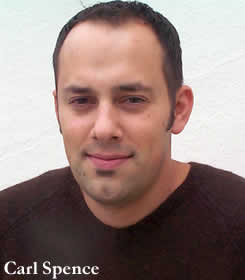 Carl Spence is currently the Artistic Director of the Seattle International Film Festival Group and the director of programming at the Palm Springs International Film Festival. Before his tenure at these two organizations he was director of programming at the San Francisco International Film Festival.
Carl Spence is currently the Artistic Director of the Seattle International Film Festival Group and the director of programming at the Palm Springs International Film Festival. Before his tenure at these two organizations he was director of programming at the San Francisco International Film Festival.
Prior to his work in San Francisco, Carl spent eight years at the Seattle International Film Festival as a programmer and associate director of the organization. He began his career successfully curating two years of film programs, concerts and live events at the University of Washington in 1991 followed by a brief stint working for the major film studios in publicity and promotions prior to joining the Seattle International Film Festival in 1994. Carl has a Bachelor of Arts degree from the University of Washington in Theatre. He has also studied film at the NYU Tisch School for the Arts and has lived abroad in Japan.
Bijan Tehrani: Please tell us about the history of Seattle International Film Festival
Carl Spence: The Seattle International Film Festival began in 1976 at the Moore Theatre with a two-week, 18 film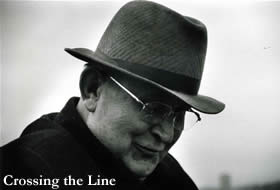 schedule—a creation of SIFF co-founders Dan Ireland and Darryl MacDonald. Seattle filmgoers immediately supported the Festival in large numbers at a time when there were only a handful of film festivals in North America (San Francisco, New York, Chicago, Vancouver and the now defunct Filmex in LA). The Festival grew rapidly, beginning in 1980 to bring in filmmakers for post-screening discussions and expanding in 1985 to a new home, the Egyptian Theatre on Capitol Hill. Now the Festival has grown to encompass multiple venues and 30 days of over 400 films. SIFF had also added many innovative new programs to its lineup, including a short film competition, the Midnight Movies series, Tributes, Retrospectives, all-night movie marathons and two of its most innovative and popular events: the Secret Festival and the annual poster auction. Newer programs added in the last 10 years, now SIFF mainstays, include Films 4 Families, Fly Filmmaking Challenge and Archival Presentations.
schedule—a creation of SIFF co-founders Dan Ireland and Darryl MacDonald. Seattle filmgoers immediately supported the Festival in large numbers at a time when there were only a handful of film festivals in North America (San Francisco, New York, Chicago, Vancouver and the now defunct Filmex in LA). The Festival grew rapidly, beginning in 1980 to bring in filmmakers for post-screening discussions and expanding in 1985 to a new home, the Egyptian Theatre on Capitol Hill. Now the Festival has grown to encompass multiple venues and 30 days of over 400 films. SIFF had also added many innovative new programs to its lineup, including a short film competition, the Midnight Movies series, Tributes, Retrospectives, all-night movie marathons and two of its most innovative and popular events: the Secret Festival and the annual poster auction. Newer programs added in the last 10 years, now SIFF mainstays, include Films 4 Families, Fly Filmmaking Challenge and Archival Presentations.
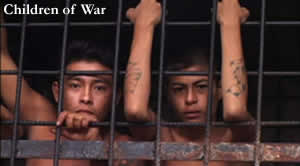 Always on the cutting edge, the Festival is perhaps best known for its eclectic, wide-ranging programming, which encompasses everything from the latest in European, Asian, and Contemporary World Cinema to the premieres of American Independent and major studio releases. SIFF was the first festival to introduce work of Lar von Trier, Julio Medem, the Coen Brothers, Carl Franklin, Pedro Almodovar, Richard Linklater, Jan de Bont, Neil Jordan, Paul Bartel, Stephen Frears, Sam Raimi, Krysztof Zanussi, Fons Rademakers, Bigas Luna, Takeshi Kitano, Alejandro Amenabar, and many, many others.
Always on the cutting edge, the Festival is perhaps best known for its eclectic, wide-ranging programming, which encompasses everything from the latest in European, Asian, and Contemporary World Cinema to the premieres of American Independent and major studio releases. SIFF was the first festival to introduce work of Lar von Trier, Julio Medem, the Coen Brothers, Carl Franklin, Pedro Almodovar, Richard Linklater, Jan de Bont, Neil Jordan, Paul Bartel, Stephen Frears, Sam Raimi, Krysztof Zanussi, Fons Rademakers, Bigas Luna, Takeshi Kitano, Alejandro Amenabar, and many, many others.
Cited by the New York Times, Variety, Film Comment and USA Today as one of the top five festivals in North America, SIFF is also considered one of the best “audience festivals” in the world. Seattle’s love for film (Seattleites see more movies per capita than any other city in the nation) makes the city the most appropriate setting for new films to be seen, tested and celebrated, by everyone—film fan and filmmaker alike.
North America, SIFF is also considered one of the best “audience festivals” in the world. Seattle’s love for film (Seattleites see more movies per capita than any other city in the nation) makes the city the most appropriate setting for new films to be seen, tested and celebrated, by everyone—film fan and filmmaker alike.
Bijan: How and when did you involve with the festival? 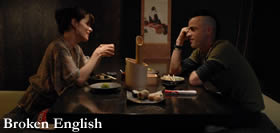 Carl: I’ve first came to SIFF in 1994 and have worked with SIFF for the majority of my career. I got my start prior to this programming films, concerts and events at the University of Washington bringing people like Ellen Degeneres and music groups like Phish to the campus in addition to jump-starting the film exhibition program there. Most recently I have headed up the programming departments at the San Francisco International Film Festival and also the Palm Springs International Film Festival prior to being promoted to the position of Artistic Director at the Seattle International Film Festival two years ago.
Carl: I’ve first came to SIFF in 1994 and have worked with SIFF for the majority of my career. I got my start prior to this programming films, concerts and events at the University of Washington bringing people like Ellen Degeneres and music groups like Phish to the campus in addition to jump-starting the film exhibition program there. Most recently I have headed up the programming departments at the San Francisco International Film Festival and also the Palm Springs International Film Festival prior to being promoted to the position of Artistic Director at the Seattle International Film Festival two years ago.
Bijan: What are the different categories in Seattle International Film Festival competitions?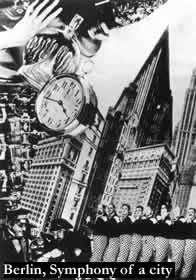
Carl: NEW DIRECTORS SHOWCASE: most promising emerging talents in world cinema- each film considered in this category is a debut or second feature by the selected director. The stand out film is selected based on its original conception, striking style and overall excellence.
NEW AMERICAN CINEMA: Extraordinary films that have yet to receive American distribution, jurors select the film that best represents both filmmaking excellence and distinct vision.
DOCUMENTARY COMPETION: 12 remarkable films that capture true human spirit through non-fiction storytelling.
SIFF SHORTS: Best in each of these three categories- Live Action, Animation and Documentary
In addition to the four main SIFF competitions, a young filmmaker will be chosen for a cash prize from the FUTUREWAVE PROGRAM (18 and under), from the jury consisting of SIFF’s 2007 FlyFilmmakers.
The Audience awards- the esteemed Golden Space Needle award, is given to; Best Film, Best Documentary, Best Documentary, Best Actor, Best Supporting Actor, Best Supporting Actress & Best Short Film.
Bijan: Have international cinema a strong presence at Seattle International Film Festival. How many countries are expected to participate in 2007 festival?
Carl: 60 countries are represented
Bijan: Is there any focus on cinema of a reign, a country or an international filmmaker? Carl: We truly represent the “international” in Seattle International Film Festival and will have over 60 countries showing films including four from Malaysia. Each year we highlight one country and this year our country spotlight is focused on Germany. With a remarkable selection of 15 films from emerging talents and established masters, including Bülent Akinci’s funny, tragic and existential feature debut, Running On Empty; second time director Chris Kraus’s award-winning Four Minutes; director Ann-Kristin Reyels’ hilarious tale of adolescent puppy love and family dysfunction, Hounds; and director Martin Weisz’s austere and chillingly true story of cannibalism, Grimm Love. Established master Volker Schlöndorff finds renewed inspiration in the true stories of overlooked heroes of the Poland Solidarity Movement in Strike. Also a part of SIFF’s Face the Music offering, local psych band Kinski will perform a live film score to the 1927 German classic Berlin: Symphony of a City.
Carl: We truly represent the “international” in Seattle International Film Festival and will have over 60 countries showing films including four from Malaysia. Each year we highlight one country and this year our country spotlight is focused on Germany. With a remarkable selection of 15 films from emerging talents and established masters, including Bülent Akinci’s funny, tragic and existential feature debut, Running On Empty; second time director Chris Kraus’s award-winning Four Minutes; director Ann-Kristin Reyels’ hilarious tale of adolescent puppy love and family dysfunction, Hounds; and director Martin Weisz’s austere and chillingly true story of cannibalism, Grimm Love. Established master Volker Schlöndorff finds renewed inspiration in the true stories of overlooked heroes of the Poland Solidarity Movement in Strike. Also a part of SIFF’s Face the Music offering, local psych band Kinski will perform a live film score to the 1927 German classic Berlin: Symphony of a City.
In Addition our EMERGING MASTERS honors the work of four directors poised to become the world’s next cinematic masters. The Emerging Masters series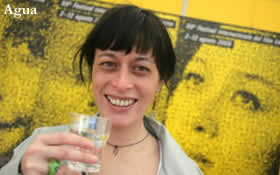 presents the newest film by selected artists, in addition to one of their earlier achievements. This year SIFF honors Mauritania’s Abderrahmane Sissako (Bamako and Waiting for Happiness); Israel’s Eytan Fox (The Bubble and Yossi & Jagger); Franco-Iranian Rafi Pitts (It’s Winter and Season Five); and France’s Olivier Dahan (La vie en rose and La vie promise). Eytan Fox, Rafi Pitts, and Olivier Dahan will be in attendance.
presents the newest film by selected artists, in addition to one of their earlier achievements. This year SIFF honors Mauritania’s Abderrahmane Sissako (Bamako and Waiting for Happiness); Israel’s Eytan Fox (The Bubble and Yossi & Jagger); Franco-Iranian Rafi Pitts (It’s Winter and Season Five); and France’s Olivier Dahan (La vie en rose and La vie promise). Eytan Fox, Rafi Pitts, and Olivier Dahan will be in attendance.
Bijan: What are different events of the 2007 festival?
Carl: We have lots of events that happen at the festival, our opening night will kick-off May 24th at Marion Oliver McCaw Hall at Seattle Center, with Son of Rambow, an energetic and visually striking homage to childhood and the movies, from filmmakers Garth Jennings and Nick Goldsmith, who will be in attendance. We follow the screening that evening with a celebration for SIFF’s 3,000 friends and fans.
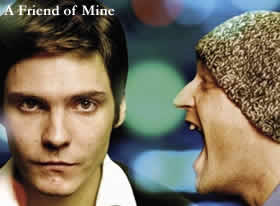 Over the 25 days of SIFF, more than 200 actors, directors and film industry professionals will be in attendance and at the screenings of their films, including Steve Buscemi, and honored guest Sir Anthony Hopkins, who will introduce his writing/directing debut, Slipstream. Hopkins will also be presented with a SIFF Lifetime Achievement Award during a tribute event on May 30th, which will include an onstage interview with film clips, followed by a screening of The Remains of the Day. A special tribute screening will be held for the late Dutch director and friend of SIFF from its beginning, Fons Rademakers. SIFF will celebrate his great additions to the world of cinema with a memorial presentation and a screening of his crowning achievement, Max Havelaar.
Over the 25 days of SIFF, more than 200 actors, directors and film industry professionals will be in attendance and at the screenings of their films, including Steve Buscemi, and honored guest Sir Anthony Hopkins, who will introduce his writing/directing debut, Slipstream. Hopkins will also be presented with a SIFF Lifetime Achievement Award during a tribute event on May 30th, which will include an onstage interview with film clips, followed by a screening of The Remains of the Day. A special tribute screening will be held for the late Dutch director and friend of SIFF from its beginning, Fons Rademakers. SIFF will celebrate his great additions to the world of cinema with a memorial presentation and a screening of his crowning achievement, Max Havelaar.
Four films encompass SIFF’s Weekend Gala Presentations, with special guests and celebrations to follow. SIFF’s 2007 Gala selections include Julie Delpy’s charming 2 Days in Paris, the North American Premiere of Jacob Chueng’s A Battle of Wits, Lars von Trier’s provocative and funny The Boss of it All, and the star-studded Evening, directed by Lajos Koltai. In addition to the Saturday Galas, SIFF will present the North American premiere of Poltergay as a special Thursday night ‘Gay-la’ event.
Additionally, the Festival will spotlight four more films as Special Presentations, including David Sington’s stunning documentary on the stories of the Apollo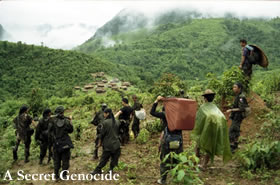 missions, In the Shadow of the Moon, the North American Premiere of Fernando Pérez’s atmospheric Madrigal, Gary Weimberg’s portrait of conscientious objectors, Soldiers of Conscience, and the US Premiere of Milos Forman’s newest, Goya’s Ghosts, featuring Natalie Portman and Javier Bardem.
missions, In the Shadow of the Moon, the North American Premiere of Fernando Pérez’s atmospheric Madrigal, Gary Weimberg’s portrait of conscientious objectors, Soldiers of Conscience, and the US Premiere of Milos Forman’s newest, Goya’s Ghosts, featuring Natalie Portman and Javier Bardem.
The festival will wrap with the North American premiere of Laurent Tirard’s Molière, a sumptuous historical comedy about the great French satirist. Principal cast features some of France’s hottest stars, including Romain Duris, Fabrice Luchini, Laura Morante, Éduoard Baer, and Ludivine Sagnier.
In addition to all the parties, we are also very excited about a new program and a landmark event among major film festivals, SIFF’s inauguration of Planet Cinema. Curated in collaboration with Caroline Libresco and presented in partnership with the Greater Seattle Climate Dialogues, the series will showcase 16 new films about the environment and global climate change along with a festival-wide dialogue campaign that invites people to discuss, engage, and act on the most pressing issue of our time.
Bijan: Please tell us about Seattle International Film Festival jury members.
Carl: This year we again, have an outstanding group of talented jurors for each of our competitions including :
This year’s New Directors Jury: Cameron Bailey, a writer, broadcaster and film programmer with the Toronto International Film Festival, where he founded the  Festival’s Planet Africa section, and headed its Perspective Canada series. Angelo Acerbi Head of Production for Italy’s leading Film Commission, Torino Piemonte. In 2004 he started his own television and movie production company. He’s now CEO of the Alba International Film Festival in Italy. Jeremy Kay is the chief US reporter for the film trade magazine Screen International.
Festival’s Planet Africa section, and headed its Perspective Canada series. Angelo Acerbi Head of Production for Italy’s leading Film Commission, Torino Piemonte. In 2004 he started his own television and movie production company. He’s now CEO of the Alba International Film Festival in Italy. Jeremy Kay is the chief US reporter for the film trade magazine Screen International.
The New American Cinema Jury:
Charles Pugliese is currently the head of development for Killer Films.
Carl Hampe was named Director, Acquisitions, Warner Independent Pictures in July 2006.
Nancy Bishop is the editor and publisher of Venice magazine
The Documentary Competition Jury: Emily Woodburne is the director of theatrical sales for IFC First Take, a newly created label that acquires and distributes 24 films per year, releases them nationwide and simultaneously offers them on-demand. Sarah Finklea currently handles theatrical booking and television sales for Janus Films. Ella Taylor is a film critic at the L.A. Weekly, member of the national Society of Film Critics and co-host of a weekly radio broadcast, Filmweek, for Southern California’s KPCC.
Bijan: What we should look forward in 2007 festival? Any exceptional movie or new talent?
Carl: With over 400 films, we have a great mix of new discoveries alongside masterfilmmakers. We are thrilled to be hosting Anthony Hopkins as our 2007 Lifetime Achievement Recipient and equally excited to introduce the many new filmmakers featured throughout the festival from our numerous short film programs to our new directors and new American cinema competitions. Daniel Waters, the writer beyond the film Heathers will be presenting the World Premiere of his new film SEX AND DEATH 101 starring Simon Baker and Winona Ryder. Planet Cinema is an bold groundbreaking sidebar at the festival looking at our interaction with the planet. These are just a few of the exceptional highlights at the upcoming Seattle International Film Festival.
Bijan: Is there any attention to Documentary productions at the festival?
Carl: We will screen 61 documentary features at this year’s Festival -these selections are from all over the world and bring to the screen a wide spectrum of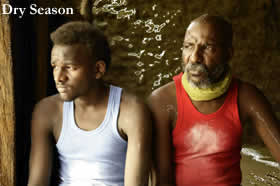 experiences–detailed personal profiles, individual expressions, political scrutiny, historical revelations and examinations of cultural trends and divides.
experiences–detailed personal profiles, individual expressions, political scrutiny, historical revelations and examinations of cultural trends and divides.
From the stories of the Apollo Missions with IN THE SHADOW OF THE MOON; to a resonating portrait of conscientious objectors in SOLDIERS OF CONSCIENCE; to the innocent joy and transformation of young girls at a NW music camp in GIRL’S ROCK.
Also as a part of our third annual and very popular Face the Music program, SIFF has selected eleven music documentaries that span time, genre and the world. Additionally, SIFF is screening two programs of documentary shorts; AGAINST THE GRAIN: ART AND LIFE, four stories of life lived to its most passionate, and BEHIND THE HEADLINES, finding the virtues of truth and strength in unlikely places.
SIFF attendees are encouraged to vote for their favorite documentary feature: The winning film receives the venerated SIFF audience award, the Golden Space Needle. Twelve films from around the world participate in this year’s juried Feature Documentary competition. All short documentaries will be eligible for the juried Short Film/Documentary competition.
Bijan: Please tell us about your plans for the future of the Seattle International Film Festival
Carl: Starting last March we opened our own state-of-the-art cinema at McCaw Hall in Seattle. In addition to maintaining SIFF’s reputation as the largest and best attended film festival in the United States, we plan on expanding our year-round programming efforts and will be building a permanent home that will provide
a distinct, international destination committed to celebrating the world of film 52 weeks a year. The Film Center will inspire audiences to a greater understanding of the world’s cultures —past, present, and future—through film; celebrate achievements of American and international filmmakers; and illuminate the power of film through education for all ages.
Our new home will include a film archive and reference library with public viewing stations, educational facilities, a permanent box-office and office space for SIFF Group staff, The Film School and possibly other Seattle film organizations to help brand Seattle as one of the premiere epicenters of film culture.

